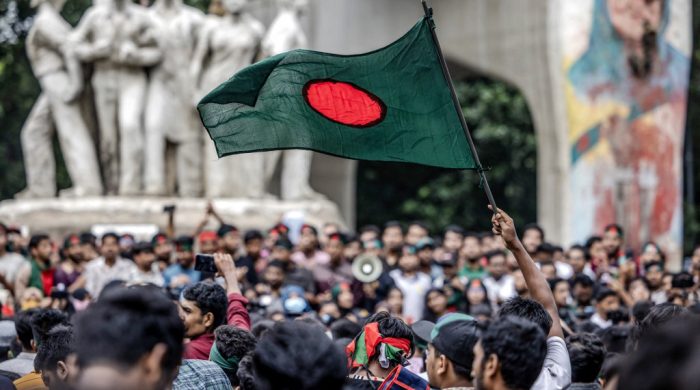Around 650 killed from July 16 to Aug 11 in Bangladesh, UN says

- Update Time : Saturday, August 17, 2024
- 27 Time View

The Office of the United Nations High Commissioner for Human Rights, in a preliminary report released on Friday, said that about 650 people were killed during student protests in Bangladesh between July 16 and August 11.
According to the UN body, nearly 400 deaths were reported from July 16 to August 4 while around 250 people were killed in a new wave of protests on August 5 and 6.
The student-led protests led to the ouster of long-time ruler Sheikh Hasina, who resigned on August 5 and fled to India.
The UN report observed that security forces like police and the Border Guard Bangladesh used unlawful lethal force and deliberately targeted unarmed people during the protests.
The victims include protesters, bystanders, journalists covering the events, and a number of members of the security forces.
Thousands of protesters and bystanders have been injured, with hospitals overwhelmed by the influx of patients, according to the report.
‘The reported death toll is likely an underestimate, as information collection has been hindered by restrictions on movement due to the curfew and the internet shutdown,’ it said.
While launching the preliminary report on recent Bangladesh protests, UN rights chief Volker Turk said that the transition in Bangladesh was a ‘historic opportunity’ for the country to ensure governance upholding human rights and the rule of law.
The UN report came a day after the UN resident coordinator in Bangladesh, Gwyn Lewis, said on Thursday that a UN fact-finding team would visit Bangladesh next week.
The UN observed that student protests were peaceful in mid-June but descended into violence in mid-July, particularly following inflammatory remarks referring to the protesters as ‘razakars’.
Violence further escalated on July 15 when members of the BCL attacked student protesters, it observed.
It said that the images of the killing of Abu Sayed that were circulated widely on social media, further ignited anger.
On July 29, the home minister of the now-deposed government acknowledged that 150 people were killed in the protest.
However, the Directorate General of Health Services found 407 deaths in public hospitals across the country between July 15 and August 15 as a result of student protests, according to a report unpublished by DGHS but seen by New Age.
DGHS, however, said that it could not collect information from private hospitals.
According to DGHS data, 18,576 people were injured in the unrest, and 4,554 of them were admitted to public hospitals with injuries.
The UN Human Rights Office said that the security forces’ unlawful use of lethal arms and deliberate firing against unarmed protesters left at least four journalists and 32 children killed, among others.
‘These casualties resulted from the use of live ammunition and other force against protesters who, while acting violently, reportedly were not armed, or only lightly armed, as well as from instances of security forces unlawfully using lethal force against protesters posing no apparent threat, unarmed protesters, and bystanders,’ according to the report.
Analysing the videos, the rights organisation found the unnecessary and disproportionate use of force by law enforcement agencies against protesters.
The UN said that the actions of security forces violated Bangladesh’s obligations to uphold the rights to life and physical integrity and relevant international human rights standards, as further specified by the United Nations Basic Principles on the Use of Force and Firearms by Law Enforcement Officials.
According to the principle, law enforcement agencies may only use firearms in self-defence or defence of others against individuals representing an imminent threat of death or serious injury, and only if no less extreme means are sufficient.
The UN mentioned that Rangpur protester Abu Sayeed was shot directly at his chest, despite him not posing any visible threat.
‘Upon impact, Abu Sayed clutched his chest as the officers fired at least twice more,’ said the report.
The report observed that the authorities did not ensure medical services for the injured, though they must provide necessary medical care to the injured urgently.
The UN report said that information collected by its rights agency indicated that the government had ‘deliberately restricted’ internet services, including access to social media, to curb the dissemination of information and hinder the coordination of protest activities.
The UN body included a set of recommendations in its report, urging political parties to prioritise de-escalation, prevent any further loss of life or injury, and refrain from reprisals against political opponents of all viewpoints.
It also urged all to uphold the rights to freedom of expression, peaceful assembly, and minority protection, among others.
The rights organisation also urged the interim government to take steps to restore democratic order and the rule of law through an inclusive and participatory process guided by human rights.
It also urged the government to provide law enforcement agencies with clear instructions limiting the use of force and ensuring treatment for the injured.















